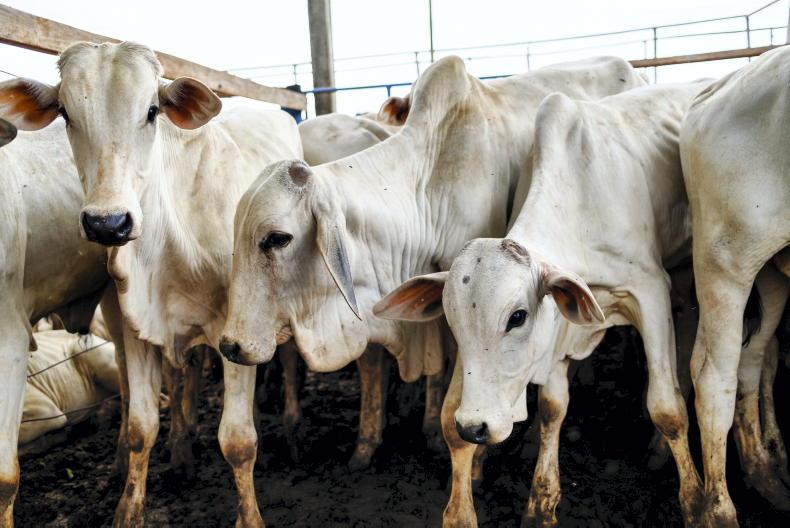What temperature should I cook my meat? How much vitamin D should I be taking every day? These are simple, practical questions that we consumers ask. The answers we receive are usually straightforward but behind this there is extensive scientific research, often sourcing studies undertaken throughout the world. Deciphering this research and coming up with solid public health advise for consumers falls to the Scientific Committee, appointed by the Food Safety Authority of Ireland.
Providing expert scientific advice on all aspects of food safety and nutrition, the Scientific Committee is made up of 15 members from all different backgrounds serving a five-year term. The new committee was recently appointed by the Minister for Health Stephen Donnelly and Professor Martin Cormican from NUI Galway, who has served on the committee for many years and was named the new chair. Speaking to Irish Country Living, Martin tells us about the work they plan to embark on between now and 2026.
Five-year plan
“From bugs to chemicals to dietary guidelines, it is a broad spectrum of topics that the Scientific Committee will be working on in the coming years. One of the big areas we will focus on is a project called the Total Diet Study. This study will look at the foods people consume in Ireland and the quantities they consume them in – the answers of which will form a baseline for other work we will be undertaking, so it’s very important.
“Vitamin D will be a big focus for us, especially between the ages of five and 65. The last Scientific Committee did a lot of work in this area and we will be building upon that.
“Persistent organic pollutants (POPs), the issues and risks associated with that in relation to foods of animal origin – particularly extensively reared or organic farm animals – will also be a focus. As will probiotics in foods for those who might be at a higher risk for infection. We’ll also be looking at the risks associated with the foodborne virus called hepatitis E in Ireland.”

While the working document is extensive, it’s also very dynamic as the committee is expected to be on standby and respond whenever something new emerges. “This will vary from issue to issue,” says Martin. “The last committee, for example, would never have expected a global pandemic to occur during their tenure. However, it was derived very early on that Covid-19 is an airborne disease rather than something that is transmitted to humans through food. This was an important piece of information for people to know, especially at the start of the pandemic when there was a lot of uncertainty and fear among consumers.”
VTECH (Vero cytotoxin-producing Escherichia coli) also known as STEC (shiga toxin-producing E. coli), was an important area of research. “It’s a bug that has been around for a number of years,” Martin explains. “It lives harmlessly in some animals but it can cause diarrhoeal effects in humans. It can be spread in contaminated water and in food so it was an area that the last scientific committee focused on. They looked at the scale of the risk and how it can be managed.”
When it came to issuing advice on managing this bug, it – like so many other food contagions – is managed in the same way; following public advice about washing hands, storing your food correctly, hygiene in the kitchen, avoiding cross contamination and cooking your food to the correct temperature.
Risks
“Most of the risks come down to doing those ordinary everyday food safety practises and continuing to do them all the time,” says Martin.
It’s difficult to predict what firefighting measures the Scientific Committee will come up against in the next five years but their work is constantly evolving because our diets are constantly evolving.
“As a society, our diets are much more varied compared to what they were 20 or 30 years ago. Back then, meat and two vegetables was the common staple for dinner. Now we are enjoying cuisines from across Europe, China, Japan, India, South America and with that the range of ingredients we use in our meals is much more diverse. This is fun and this is exciting. Food is so much of what makes life worth living and is part of our health and wellbeing, it’s such a central part of our lives and our culture.
“But with more exposure comes more risks. Now if an issue emerges with food any place in the world, it can become an issue for us. The trend towards eating more unprocessed food certainly has lots of nutritional benefits but there are also more risks compared to unprocessed foods where the food can be altered in a way that it can kill some of the bugs.”
Martin adds that it all comes down to managing risks. “We don’t want anybody to be afraid of their dinner. Food in Ireland is overwhelmingly very safe and that’s because there are people who manage the risks and worry about the risks and seek to put preventative measures in place. And that’s what the FSAI and the independent Scientific Committee do.
However, we do all need to be aware that responsibility for safe food exists at every point in the food chain, including us as consumers.
“For example, you could source top-quality uncooked meat from an excellent butcher, who can trace it back to a very good farm. But when you take it home, you need to store, prepare and cook it properly so that its safe to eat. From farm to fork, everybody has a part to play.”










SHARING OPTIONS